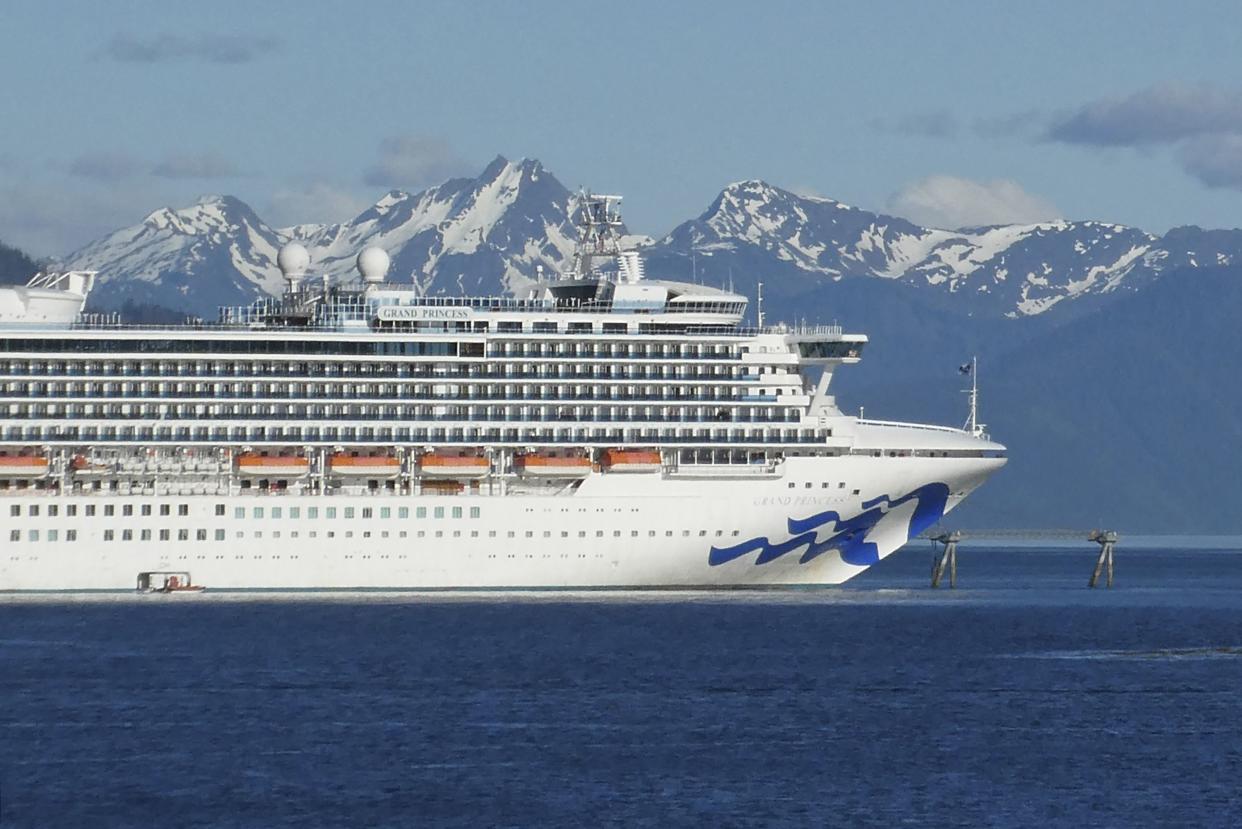Coronavirus kills second Alaska cruise season as Canada extends ship ban for one year
The Canadian government on Thursday extended the current cruise ban in its waters through February 2022, effectively killing the Alaska cruise season for a second year.
Transport Minister Omar Alghabra announced continued prohibitions on pleasure craft in Canadian Arctic waters, limiting them to 12 people, and decreed that “cruise vessels carrying more than 100 people are still prohibited from operating in Canadian waters,” until Feb. 28, 2022.

The move marks a yearlong extension of a ban imposed in March 2020 as the coronavirus pandemic took hold.
“Temporary prohibitions to cruise vessels and pleasure craft are essential to continue to protect the most vulnerable among our communities and avoid overwhelming our health care systems,” Alghabra said in the ministry’s statement. “This is the right and responsible thing to do.”
The ban quashes Alaska’s 2021 cruise season, since it deprives foreign-flagged ships of the ports they must stop at to comply with U.S. federal law. Most large cruise ships that visit Alaska are registered in foreign countries, and the U.S. mandates that any foreign-flagged ship stop at a foreign port between two American ports, the Anchorage Daily News explained. To fulfill that requirement, large Alaska-bound ships tend to begin their voyages in Canada or make a Canadian point one of their stops.
“Since the new year, the tea leaves and the news has been progressively more pessimistic for the return of cruise ships for the summer,” Juneau City Manager Rorie Watt told Alaska Public Media, adding that he hadn’t expected Canada to clamp down for an entire second year. “Three months ago, we thought we’d see ships in May. A month ago maybe we’d see them in June, two weeks ago maybe we’d see them in July, and last week, we thought maybe we’d see them in August.”
In 2019, Southeast Alaska hosted 1.3 million cruise ship passengers, the Anchorage Daily News noted, with many of them taking excursions inland. Last year it was just 48.
Foreign-flagged ships in other markets are also affected, including the Great Lakes and Canada/New England, trade publication Cruise Industry News reported.
Noncompliance could net the offender a fine of up to Canadian $1 million (about U.S. $779,000), prison for up to 18 months, or both, Transport Canada said.
The agency left the door open for changes if conditions change.
“Cruise vessels in Canadian waters pose a risk to our health care systems,” Transport Canada said. “The Government of Canada will continue to evaluate the situation and make changes as necessary to ensure the health and safety of all Canadians. Should the COVID-19 pandemic sufficiently improve to allow the resumption of these activities, the Minister of Transport has the ability to rescind the Interim Orders.”
The ministry also advised Canadians not to get on a boat.
“With these prohibitions in place, public health authorities will be able to continue focusing on the most pressing issues, including the vaccine rollout and new COVID-19 variants,” the ministry said. “To limit the spread of COVID-19, the Government of Canada continues to advise Canadian citizens and permanent residents to avoid all travel on cruise ships outside Canada until further notice.”